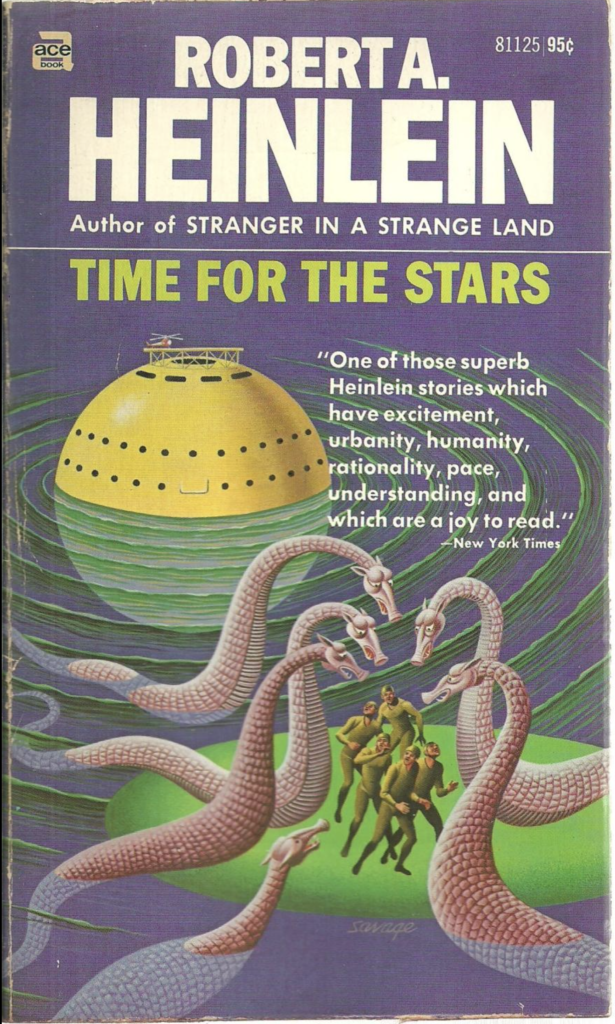I have had a very hard time reading the last ten years. Maybe twenty.
I listen to audiobooks, which is like reading, but it’s slower and more time limited, so my overall book consumption has waned from peak reading in my early teens.
I think I retain a bit more, or at any rate I attend differently when I listen, missing bits and picking up on different bits I might have missed if I was reading as I used to, with the dead trees. Re-reading by listening is always fascinating, as you definitely notice stuff you really forgot.
I have a hard time getting though e-books, unless I am reading them out loud to others. They don’t implore me to finish them as does a paper book. In part because I’m never sure how how much I’ve read, and what’s left to read; enough publishers have snuck sneak previews of other books into the ends of ebooks so I’m never quite sure when I will suddenly fall off a cliff and be in some stupid preview I was not warned about; the progress bar will have been confusing me at this point, as I will have been thinking, “man, this feels almost done, but there’s 20% left?”
So, ebooks are rough, and audiobooks take a ton of time.
So I started collecting some old books, for the covers mostly, and was sort of amazed to pick up this paperback, Time for the Stars, and read half of it at a sitting. The way I used to. Now, I’ve read this one at least twice before, and listened to it as well, I’m guessing, but still.
So I am on the look out for stuff that was okay in 65 years ago, 1956, when this was written, but which feels politically toxic now, or just weirdly dated. Or just plain weird in a story telling way. Weird, or novel, if you will. Hah.
Let me preface this by saying I love these books and don’t yell at me about this list being negative, m’kay? Don’t yell at me for loving it, for that matter. Don’t. Blanket pronouncements about RAH? Yeah. Never mind. I know more about his failings than you ever will, bub. Been through the sadness there, and am out on the other side.
Here’s the bullet point list:
- Kids need beatings: RAH believed strongly in ‘loving’ corporal punishment; all the data from the last few decades indicate that corporal punishment doesn’t work, long term, for creating better people. It can work short term for extinguishing some behavior, but it creates more problems than it solves. Everyone agrees on this now, except for certain religious fundamentalists. Who are always wrong. But RAH makes this one point, not in this, but another book, that the first time the State can legally touch a child, in some cases, is after he is 18 and they insert the lethal injection needle. There’s this conservative idea, which many police hold, that beating someone, sometimes, is how you exert loving guidance; this isn’t even a Western idea; grandmotherly kindness, in Zen, is often portrayed as being hit with a stick by grandma when you are doing something dangerously stupid.
- Newspapers are still a thing on interstellar space craft. Tons of paper in old SF. Nobody foresaw everyone walking around with networked computer displays in their pockets or built into their glasses / contact lenses. This is a weird part of the future that just didn’t occur to SF writers.
- The future has base income and POV characters are pissed about the taxes. This isn’t a complaint, really, but it is interesting that the conservative / libertarian writers of the 40s and 50s foresaw a socialized future where population pressures produced equally shared sacrifices creating a consensus around space colonization; calorie rations being cut for billions, for example. This generation lived through WW2, so I guess they foresaw this as inevitable in times of crisis. 1920s level inequality, staggering wealth and equally staggering poverty side by side, for a century, was never anything these old SF types worried about. At all. Ever. Not till Cyberpunk. COVID marks the first re-emergence of this kind of government response post WW2. The halfway decent early COVID response, to me, feels like retro-SF.
- Dangling unfinished plot threads raise eyebrows in short novel: the Panshin brothers, in their review of Time for the Stars, suggest that Heinlein had simply gotten tired of the book and wrapped it up quickly with a deux ex machina, faster than light travel, aborting many on-going plot threads. Why do the explorers never try to recover the landing team abducted by the lizard creatures? What happened to them? What really happened to the vanished ships that fall out of communication in flight? I was shocked, shocked at this explanation by the Panshins, that a writer would do that. For me, those loose ends made Time for the stars special. Magical even. Stories don’t always do what you expect them to, what you want them to do, what they seem to be telling you they will do. And that can be good.
- Single POC character is Singularly Charming: I honestly don’t feel like the single ‘negro’ character being saintly, charming, and the only religious character, is bad for 1956, but it does reflect the stylized, not fully rounded (human) representation of non-white characters in era. EE Smith would have made this guy a houseboy or porter or servant of course. And Niven would paint everyone purple, so everyone and no one is POC. But of course, none of Heinlein’s side characters are in any way rounded, so he is not doing anyone a particular disservice.
I could go on and on but I won’t. I have stuff to do. I may keep this kid of post up, and give it a title, too, so people can sort through them by category.

